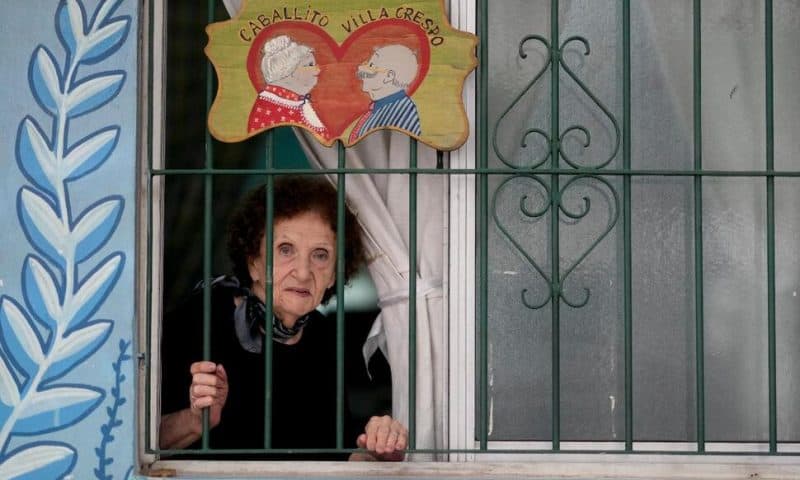Argentina’s government has announced that monthly inflation was 7.7% in March, up from 6.5% in the same month in 2022
BUENOS AIRES, Argentina — With trembling hands, the bingo players at a Buenos Aires retirement center put the buttons they use as markers on their cards. Small containers hold their betting money, coins and crumpled low-denomination bills that every day seem able to buy less.
The twice-weekly game brings some enthusiasm to the eyes of the retirees playing it in the recreational center serving Caballito and Villa Crespo, middle-class neighborhoods of Argentina’s capital. The men and women participating are all over 80 years old and find themselves in a situation they would have considered unthinkable before they retired.
“This center has middle-class people in it. We are deprived of many of the things we used to do,” said Betty Santucci, 85, who runs the place. She added quietly: “I did something I’d never done in my life: I asked for free medicine … nothing else can be done.”
Monthly inflation was 7.7% in March, up from 6.5% in the same month in 2022, Argentina’s National Institute of Statistics and Censuses announced Friday. Analysts project annual inflation — the measure used commonly internationally — will come in at 110% in 2023, one of the highest rates in the world.
“The numbers we see today represent the worst moment of the impact of the war (in Ukraine) on international prices and the worst drought in history in the country,” tweeted government spokesperson, Gabriela Cerrutti. “We know, it hurts us, it occupies us, how it affects daily life and each family.”
The impact has been particularly devastating on Argentina’s retirees, 85% of whom receive a state pension averaging 58,500 pesos a month, the equivalent of $265. That barely covers a third of their expenses for food, medicine and rent.
“I can’t even pay the rent, my daily expenses, services, and I have to eat. I have two children who bring me a ‘little package’ (of money),” Paulina Najnudel, 85, said as she played bingo. “But it makes me, not ashamed, but sad because we have worked so many years.”
Argentina had one of the most advanced pension systems in South America, with retirement pensions increasing according to a mobility formula calculated by wages and taxes collected. Between January 2022 and March 2023, pensions rose 72.5%. But in the same period prices rose more than 100%.
Now, after years of high inflation, Argentina’s minimum pension measured in U.S. dollars is one of the lowest in the region, just above Venezuela, according to a study by the Argentine consulting firm Focus Market.
“The minimum pension is not even enough for the basics,” said Ana Falcone at the retirement center.
Mercedes Villafañe, 80, described the crisis during a game. “When we retirees go shopping, we don’t by food by the kilo. We buy it by the item: one onion, one potato. We never have enough to make it to a kilogram.”
“At the moment, there is no hope,” she said.
To make up for some of the loss of purchasing power caused by inflation, the government of President Alberto Fernández ordered a monthly addition of 15,000 pesos ($67) to retirees who had low salaries as workers. But experts say it is not enough.
The Ombudsman for Senior Citizens reported at the beginning of April that the basic needs of rent, medicine and food for one person was 202,064 pesos a month, or $914 dollars, a 33% increase from six months ago.
“We are in a humanitarian crisis in the sector,” said Eugenio Semino, head of the ombudsman agency, which is responsible for defending the rights of senior citizens.
“The retiree must choose between taking medication or not taking medication, eating or not eating,” he said.
Semino said the consequences of the crisis are real though not always socially visible.
“I have been doing gerontology for 40 years and I have never seen, for example, that medication is no longer taken according to the prescription, but by what the retiree can buy. This means that treatments are neutral, they do not have any type of positive result,” he said.
Night falls and the bingo comes to an end.
Najnudel and the rest of the retirees begin filing out of the center, heading home to deal with the harsh reality of their final years — a reality they never foresaw.
“I come here, I have a good time and I am with good people. I spend a few hours fine, but I go back to my house and it’s still the same,″ Najnudel said.
“I hope all this changes. It has to change. I would like to have hope, but I will no longer be around when it happens.”

